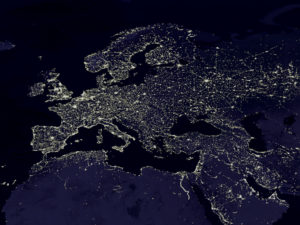Since the early 2000s, the Commission has had a space strategy and space policy, designed together with the European Space Agency. A common framework for funding and managing space activities followed in 2007. The EU’s three flagship space programmes – Copernicus, EGNOS and Galileo – guarantee the EU access to critical navigation and earth observation technology, but the deployment and operation of these space assets entails significant long-term costs for the EU budget.
 With the EU’s space infrastructure now well advanced, the Commission is taking action, as part of its 2016 Space Strategy for Europe, to promote the use of the services and data these assets provide, in order to maximise the benefits of this public investment for citizens and the wider economy.
With the EU’s space infrastructure now well advanced, the Commission is taking action, as part of its 2016 Space Strategy for Europe, to promote the use of the services and data these assets provide, in order to maximise the benefits of this public investment for citizens and the wider economy.
In view of this, the European Court of Auditors is currently conducting an audit to assess whether the Commission’s action to promote the uptake of the services provided by the EU’s main space programmes, Copernicus and Galileo, are effective. In particular, we will examine whether its activities have actually helped increase service uptake, whether the regulatory framework is favourable to this objective, and whether a well-designed strategy and a monitoring system are in place.
Source: ECA